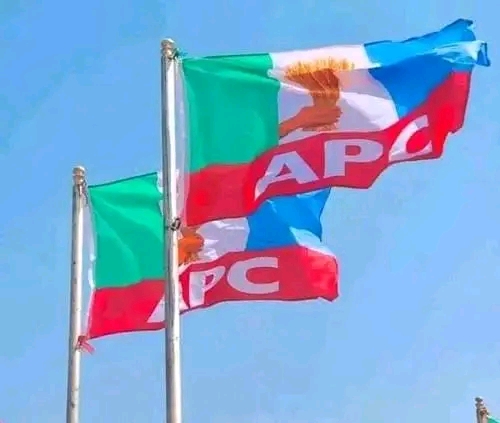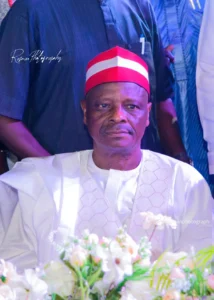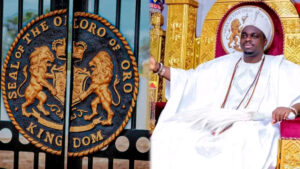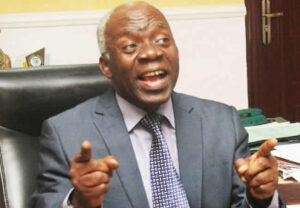
Following the resignation of Dr. Abdullahi Umar Ganduje as National Chairman of the All Progressives Congress (APC) on Friday, the North-Central geopolitical zone has launched a renewed campaign to reclaim the top leadership seat within the party.
Ganduje, who assumed office in August 2023 after the resignation of Senator Abdullahi Adamu—an APC stalwart from the North-Central—vacated the position amid mounting internal pressure. His exit has reignited agitations among party stakeholders in Kogi, Benue, Nasarawa, and other North-Central states, who insist the chairmanship should revert to their zone in accordance with the APC’s zoning principles.
Though an official zoning decision is yet to be made, sources within the party confirm that Ganduje faced intense lobbying from North-Central power blocs demanding adherence to precedent. His appointment last year was met with disapproval from many party loyalists in the region, who viewed the move as a deviation from the party’s internal arrangements.
In the interim, APC Deputy National Chairman (North), Bukar Dalori, has assumed the role of acting national chairman and will oversee party affairs until December.
In Benue State, both factions of the APC have reiterated demands for the position to be returned to the North-Central. Daniel Ihomun, spokesperson for the faction loyal to SGF George Akume, asserted that the chairmanship was originally zoned to their region and should remain so.
“It was on the basis of that arrangement that Senator Adamu emerged. With Ganduje’s resignation, we expect the party to realign accordingly once the President returns,” Ihomun stated.
Echoing similar sentiments, James Orgunga, spokesperson for the faction aligned with Governor Hyacinth Alia, emphasized that North-Central deserves the chairmanship under existing party zoning structures.
Meanwhile, stakeholders in Nasarawa State are rallying behind former Governor Tanko Al-Makura. In a statement issued in Abuja, Alhaji Saleh Zazzaga, Chairman of the APC Forum, declared the forum’s endorsement of Al-Makura after “extensive consultations” across the region.
Titled ‘Why Al-Makura Deserves to be APC National Chairman’, the statement emphasized the party’s previous zoning that brought Adamu to office in 2022 and described Al-Makura as the natural successor to represent the zone once again.
In Kogi State, APC Chairman Abdullah Bello welcomed the idea of a North-Central candidate, stating, “If the chairmanship returns to our zone, I will be glad. However, the final decision lies with the President and the party’s National Executive Committee.”
Kwara APC Chairman, Sunday Fagbemi, adopted a more reserved position, insisting the matter should be handled exclusively by the party’s National Working Committee (NWC). “The NWC knows what is best for the party’s unity and stability,” he said.
From the North-West, leaders largely deferred to the party hierarchy. Kaduna State APC Chairman, Air Commodore Emmanuel Jekada (retd.), affirmed that while the party constitution offers direction, the ultimate decision rests with party leadership.
Sokoto APC Chairman, Isa Achida, pledged the state’s support for any decision made at the national level, while Kebbi and Zamfara chapters echoed similar sentiments. Zamfara APC Publicity Secretary, Yusuf Idris, expressed regret over Ganduje’s resignation but affirmed readiness to support any successor chosen by the party’s national leadership.
In Kano, party chieftain Alhaji Alhassan Yaryasa praised Ganduje for bowing out voluntarily, alleging behind-the-scenes efforts to unseat him and possibly replace him with Senator Rabi’u Kwankwaso, in anticipation of a 2027 political alliance.
“Dr. Ganduje’s resignation, though painful, is timely and dignified. He should be commended for consolidating the party’s strength across key states and preventing further internal crisis,” Yaryasa remarked.
As internal consultations continue, many within the APC are urging the leadership to honor the spirit of zoning and allow the North-Central zone to produce the next national chairman—an outcome that could potentially shape the party’s cohesion and electoral strategy ahead of 2027.









